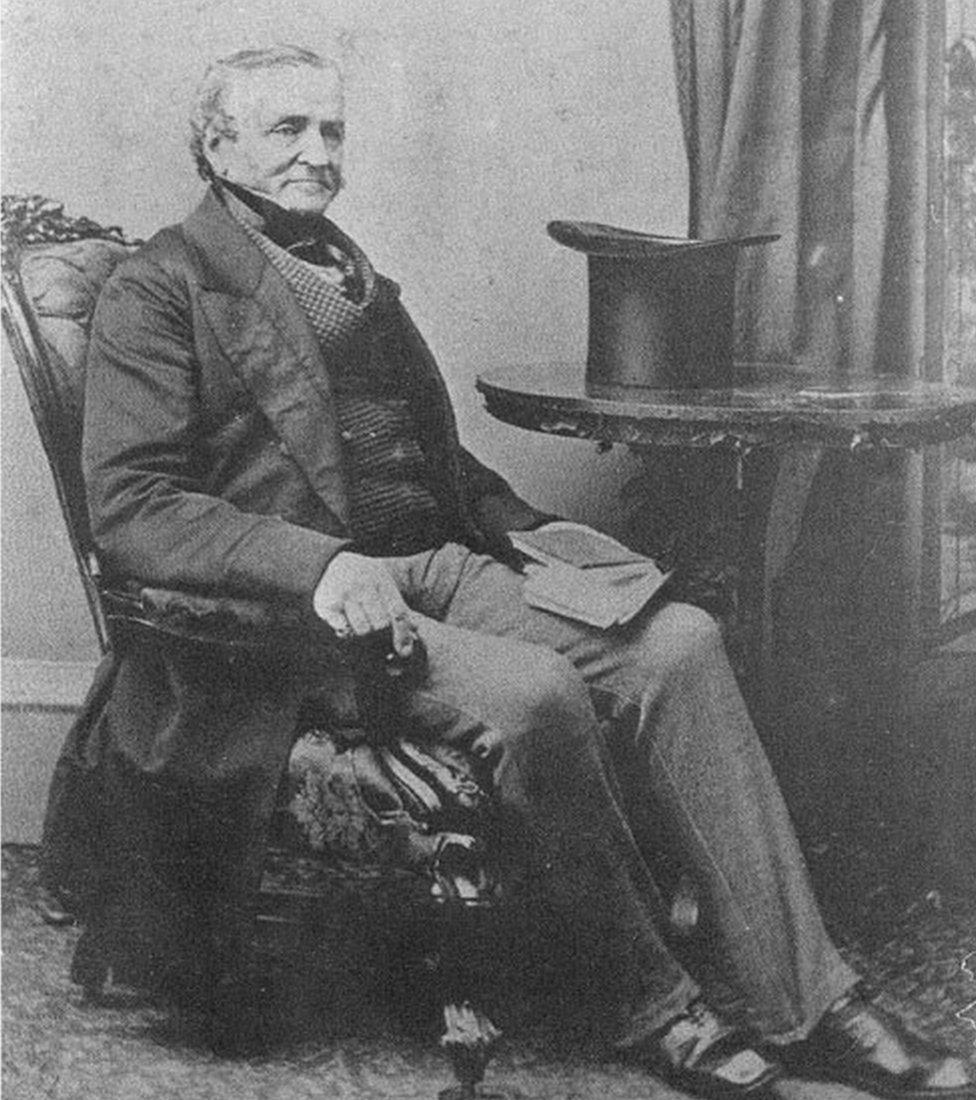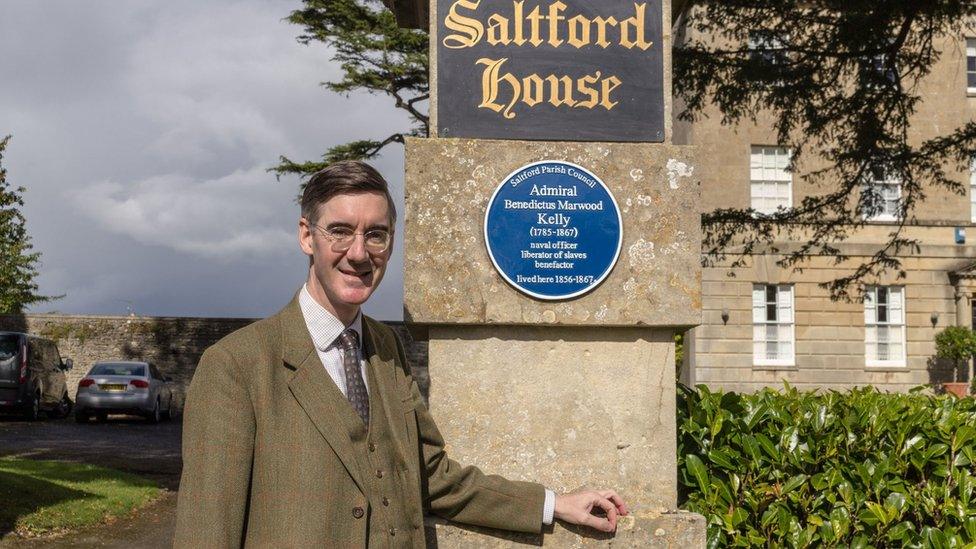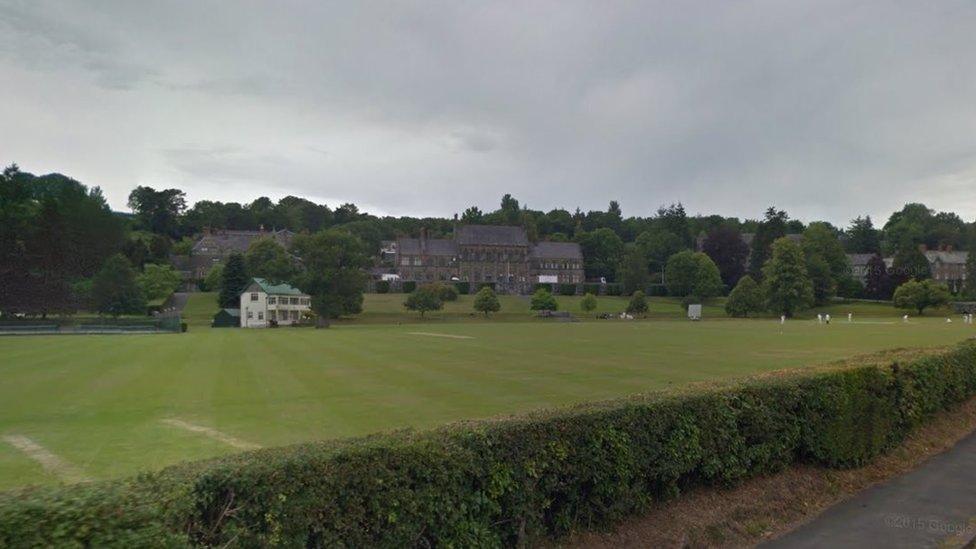Blue plaque honours Admiral Benedictus Kelly
- Published

Admiral Benedictus Marwood Kelly photographed in his 70s in the 1850s
A plaque has been unveiled to recognise a naval admiral's contribution towards the abolition of slavery.
Admiral Benedictus Kelly lived in Saltford House, near Bath, from 1856 until 1867 when he died.
The citation spoke of the "significant and dangerous" part he played helping stop the slave trade during the French Revolutionary and Napoleonic wars.
It was unveiled by MP Jacob Rees Mogg who said the community should celebrate his "remarkable life".

Conservative MP Jacob Rees Mogg unveiled the plaque at Saltford House, Admiral Kelly's home from 1856 until 1867
Chairman of Saltford Environment Group, Phil Harding, has carried out Phil Harding, has carried out extensive research on Admiral Kelly's life., external
He said he was astounded to discover his contribution to help end slavery, and provide support for the education of children in the 19th Century.
Early in his career Admiral Kelly fought the French and Spanish Fleets in the French Revolutionary and Napoleonic wars.
At the end of his active service he freed 350 slaves.
He was also part of HMS Pheasant's anti-slavery patrols off the coast of Africa from 1818 to 1822, following the Abolition of the Slave Trade Act in 1807.
He intercepted and examined several Portuguese, French and Spanish vessels suspected to be capable of carrying slaves - freeing many hundreds more.
Admiral Kelly was also one of the first directors of the Royal Mail Steam Packet Company, and held directorships of a number of railway companies in the south of England.

Kelly College was originally built for the sons of naval officers
A bequest after his death led to the building of Kelly College in Tavistock, Devon, - now known as Mount Kelly.
- Published29 September 2016

- Published25 September 2016

- Published21 September 2016
